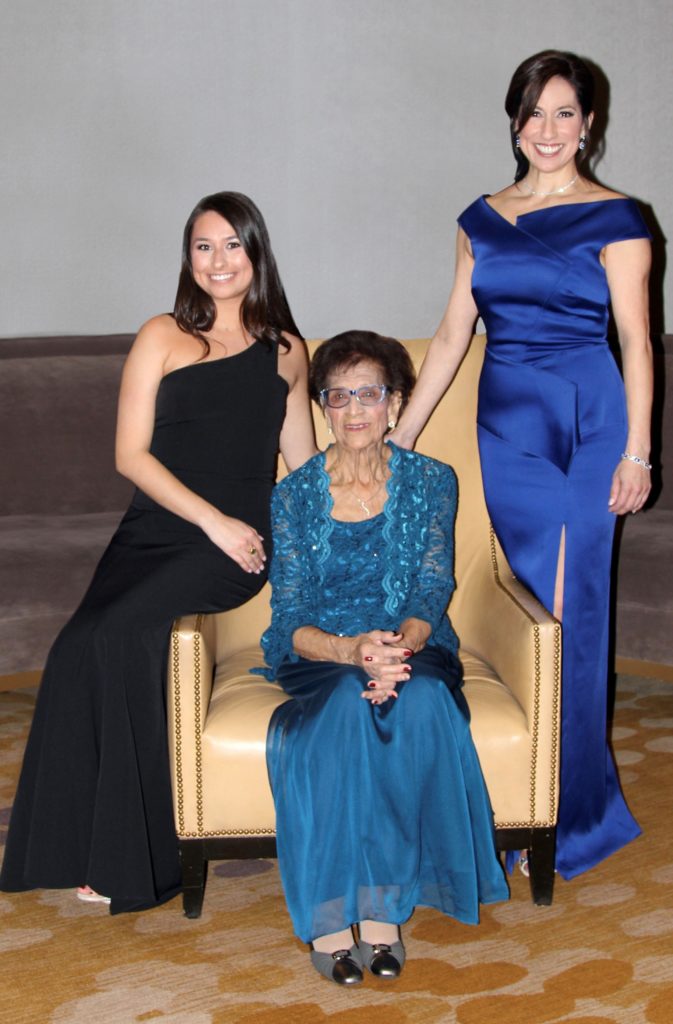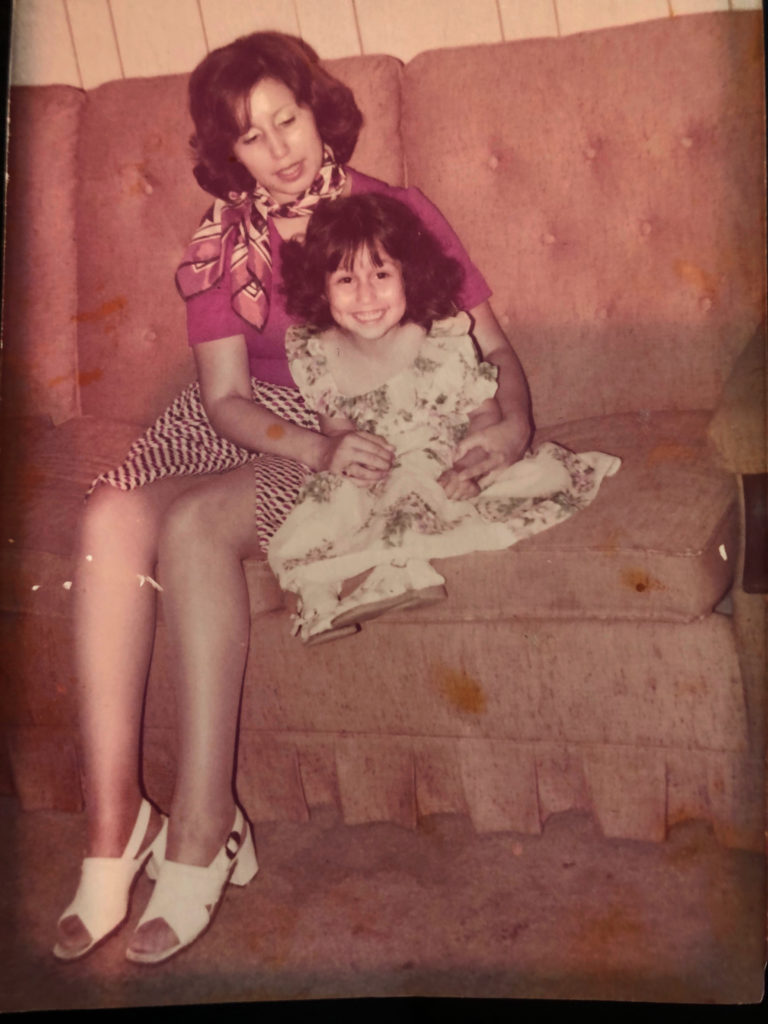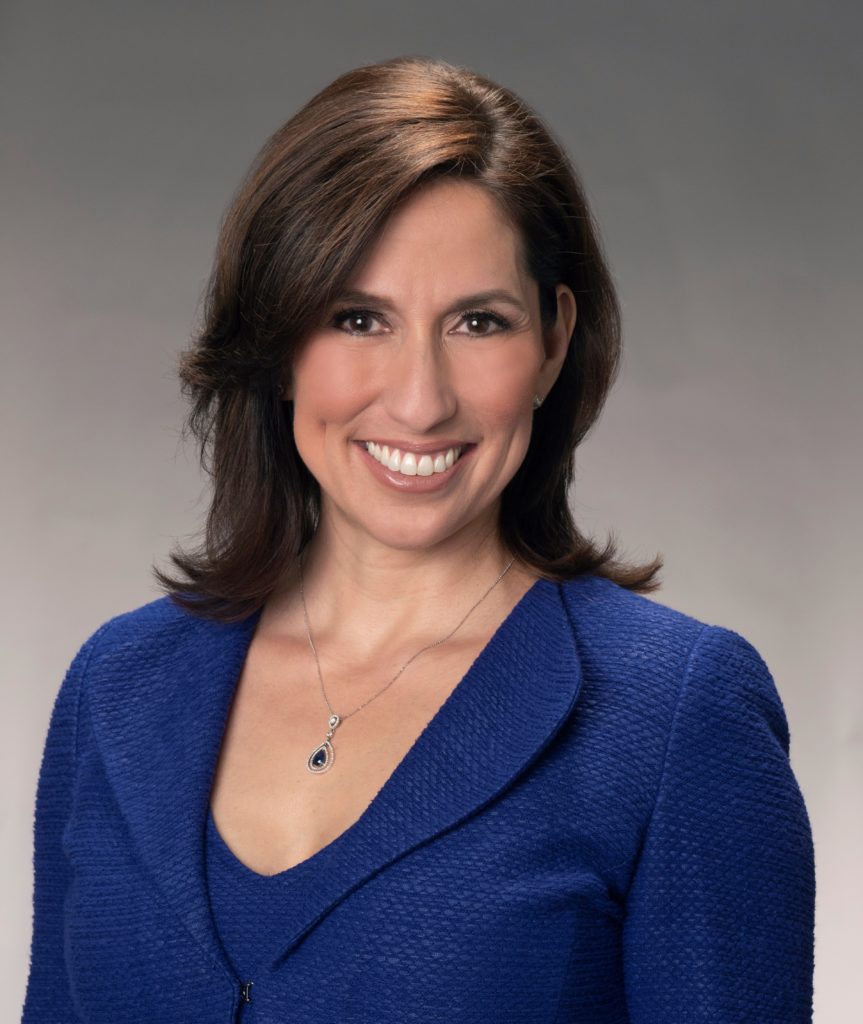
I was raised in a family of proud and patriotic Mexican Americans. Both of my grandfathers were part of the Greatest Generation who served in the U.S. Army during World War II, while my father and uncle both served this country during the Vietnam War. They fought for this country so that I could have the opportunities that allowed me to become the first lawyer in my family and the first Hispanic to lead the Dallas Bar Association as its 110th president.

Geisler with her grandmother and daughter
While the GI Bill provided college opportunities for the men in my family, the women in my family did not have the same access to higher education. My grandmother was forced to drop out of school in the eighth grade to work in the fields picking cotton, and any dreams of college my mother had were cut short when she became pregnant with me at age 19.
After I was born, my mother worked full time and my dad worked multiple jobs while attending college. I was 6 when my parents divorced, and my mom was left to raise me alone with the limited employment opportunities available to young Hispanic women during the 1970s. But my mother was determined to make a better life for us and even more determined to send me to college. To set the example, she enrolled in community college courses at night, and although she never graduated she managed to make her way up to a management position in the corporate world and send her only child to college.

Geisler and her mother
I was fortunate to grow up in a family that believed in the American dream, who saw education as a path to a better life, and who instilled in me the belief that with determination and hard work I could be anything I wanted. It did not matter that my beginnings were humble, that my skin was brown, or that I was female. I was raised to believe that, as an American, anything and everything was possible.
I did not face the same discriminatory barriers or overt bigotry that my grandparents and parents faced growing up. This is not to say I didn’t have those experiences. They were less challenging and more subtle by comparison.
Although bilingual, my parents did not want me to be subjected to the same discrimination they experienced when speaking Spanish in public or when speaking English with a heavy accent, so they only spoke to me in English. Consequently, I don’t have an accent and I also don’t speak or understand Spanish very well.
Growing up, I floated between different social circles that tended to be segregated between predominantly Hispanic and predominantly white kids. While I was comfortable floating between the different groups, it wasn’t always easy.
I was sometimes accused of being “too white” by my Hispanic friends because I had white friends and didn’t speak Spanish. With my white friends there were times when they would speak of those “Mexicans” in a derogatory way before realizing there was a Mexican among them. Sometimes I would pretend not to hear the offensive comments because they were not directed specifically at me. Sometimes I would speak up and remind the offender that “I am a Mexican.” More often than not the person making the offensive comment would catch themselves and attempt an apology which was inevitably followed by – “But you are not one of those Mexicans” – delivered as if I should take it as a compliment.
When I started law school at SMU in 1994, affirmative action programs were under attack and being challenged in court. Some of my classmates made it no secret that they believed the minorities in our class were less qualified and had been admitted solely because of affirmative action. Even when I earned my way onto SMU Law Review, I had a classmate say he didn’t realize that affirmative action spots were reserved for positions on law review. To those people I realized I was one of “those Mexicans.”

It was also during law school that I met a prominent Hispanic attorney in town who within two minutes of conversation asked about my Spanish. When I admitted to her that I did not speak Spanish very well, she told me my parents dropped the ball and promptly ended the conversation. For her, I was not Mexican enough. Just like in high school, my Mexican heritage seemed firmly divided between two worlds.
In 2019, when I was inaugurated as the first Hispanic president of the Dallas Bar Association, those two worlds came together full circle. As I delivered my inaugural speech to a crowded ballroom of approximately 1,000 people, I looked into the crowd and saw my grandmother who quit school to pick cotton and my daughter – a student at SMU – both with tears in their eyes. It was then that I realized my heritage was the product of the American dream.
Laura Benitez Geisler is a name partner at Sommerman, McCaffity, Quesada & Geisler in Dallas. Her practice focuses on representing individuals and families in personal injury and wrongful death claims. Ms. Geisler was the 2019 president of the Dallas Bar Association. She can be reached by visiting: https://www.textrial.com/attorneys/laura-benitez-geisler/.
Publisher’s Note: The Hispanic Heritage Month articles are published outside of our paywall courtesy of Androvett Legal Media & Marketing’s support for this special series.
